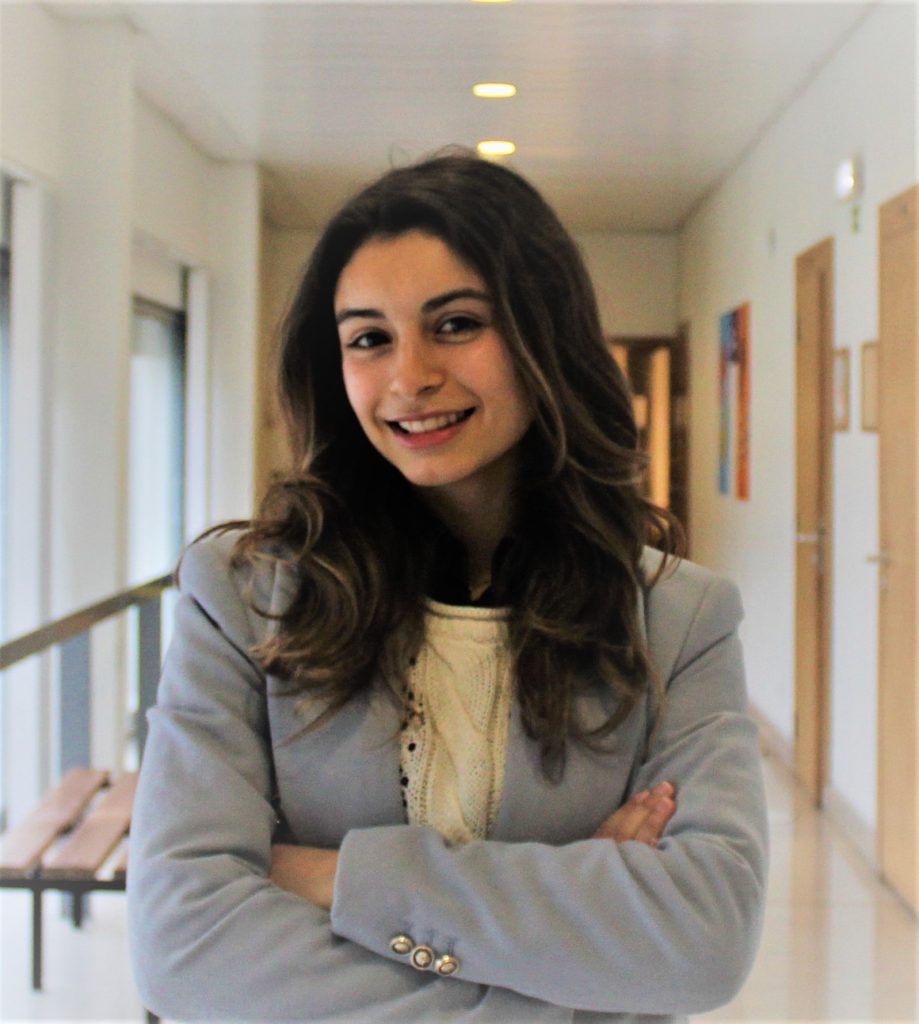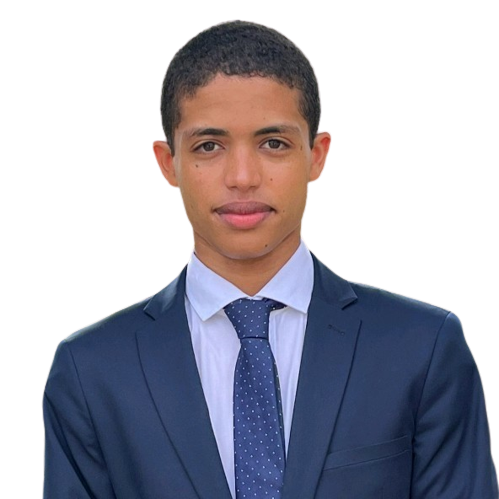After two months of intense preparation with coaches, a group of six (6) students nominated by NOVA Green Lab had the opportunity on 21 September to represent NOVA School of Law (NSL) in a mock negotiation promoted by the Association of International Energy Negotiators (AIEN). The students who represented NSL were: Catarina Rocha, a master’s student at NSL; Inês Freitas, a recent NSL graduate; Joana Gonçalves, a former NSL student (2019); Luís Bonaccorso; Tiago Salem, a recent NSL graduate; and Rickson Neves, a master’s student at NSL.
AIEN, the world’s largest association of energy negotiators, chose Lisbon as the setting for the 2023 Model Contracts Workshop, an event that brought together leading energy professionals and academics from around the world on 20, 21 and 22 September.
NOVA Green Lab had the chance to speak with three of them – Catarina Rocha, Rickson Neves and Tiago Salem, who shared their experience before and during the event.

1. How were your two months of intense preparation?
During July and August, we spent valuable time preparing for the negotiations. This preparation included a workshop with AIEN member Norman Nadorff, who provided us with detailed insights into the structure of a “Joint Operating Agreement”. This session was key to understanding the essential aspects of this type of agreement and how to apply it to our specific circumstances.
In addition, we held a total of five meetings with our coach, Maria Beatriz Gomes, during this period. At these meetings, we discussed the various chapters of the JOA in detail and assessed the best approach to adopt, taking into account the secret facts we had. These meetings played a crucial role in outlining our negotiating strategy and understanding how to effectively defend our interests.
This rigorous and guided preparation allowed our team to feel more confident and well prepared to face the negotiations with substantial knowledge and a solid strategy in mind.
Our team represented the national company, BolanGas, which had no interest in moving forward with the energy transition in the short term.
2. What did you learn in terms of content?
Negotiating standards related to the energy transition required extensive research and the formulation of solid arguments to support a viable commercial approach. Based on our company’s secret facts, we knew that we could only compromise up to an economically reasonable point when it came to the energy transition.
In this challenging context, we studied arguments related to the “just energy transition”, as well as the advantages and disadvantages of different technologies that contribute to reducing greenhouse gas emissions. This part of the negotiation was particularly challenging, as we had to defend a position that was the most difficult to uphold.
In addition, we prepared arguments to guarantee a right of first refusal to acquire the participating interest. This involved gathering evidence and arguments that demonstrated the importance of this right for our interests.
We also emphasized our preference for national economic sanctions, as we did not want economic sanctions to be applied on the basis of British or North American rules. Furthermore, we negotiated the presence of professionals of our trust with the operator to ensure that our interests were adequately represented and protected, as well as the restriction of the operator’s limitation of liability.
3. How was the relationship with the AIEN members?
On September 19, we had the opportunity to attend a warm Welcome Reception at the Pestana Palace Hotel. At this event, we had the privilege of meeting and chatting with AIEN members, while enjoying delicious snacks and drinks.
Initially, our Coach, Maria Beatriz Gomes, had informed us that we were only allowed to take part in the mock negotiation. However, due to our participation in the Welcome Reception and the interactions we had with AIEN members, we received a special invitation from AIEN’s Executive Director, John Bridges, to participate for the whole day in the events on the 21st (the day of the mock negotiation) and 22nd.
After the conclusion of the mock negotiation, all the teams received praise from the audience for our performance during the negotiation. In addition, some participants asked us for our contacts, which demonstrates that we managed to build solid and positive relationships with AIEN members and other participants.
This experience was not only a valuable learning and networking opportunity, but also a testament to our performance and skills in the area of negotiation, which fills us with pride and encourages us to continue working hard on our professional development.
4. What was it like being on stage simulating a negotiation in front of the professionals from all over the world?
This experience represented a significant challenge for us, as we were defending the interests of our national company in the midst of a complex negotiation involving two large companies committed to the energy transition. In addition, the negotiation took place in a language that was not our native language, with the use of specific technical and legal terms.
The two months of intense preparation that preceded the negotiation culminated in a negotiation that was being appreciated by professionals specialized in the field from all over the world. At the negotiating table, we made our positions known to the team of experienced lawyers and equally well-prepared colleagues. Our team was focused on achieving the objectives we had set based on the secret facts.
What made this negotiation remarkable was that it was conducted in a pacific and respectful manner, despite the differences in interests at stake. All the teams involved managed to move towards their objectives, and we achieved a significant part of our objectives.
Our team’s ability to effectively represent the national company’s interests and negotiate in a foreign language and dealing with experienced adversaries is a testament to our commitment and preparation. This experience not only challenged us, but also strengthened our confidence in our negotiation skills and ability to achieve positive results in an environment with highly qualified professionals.





